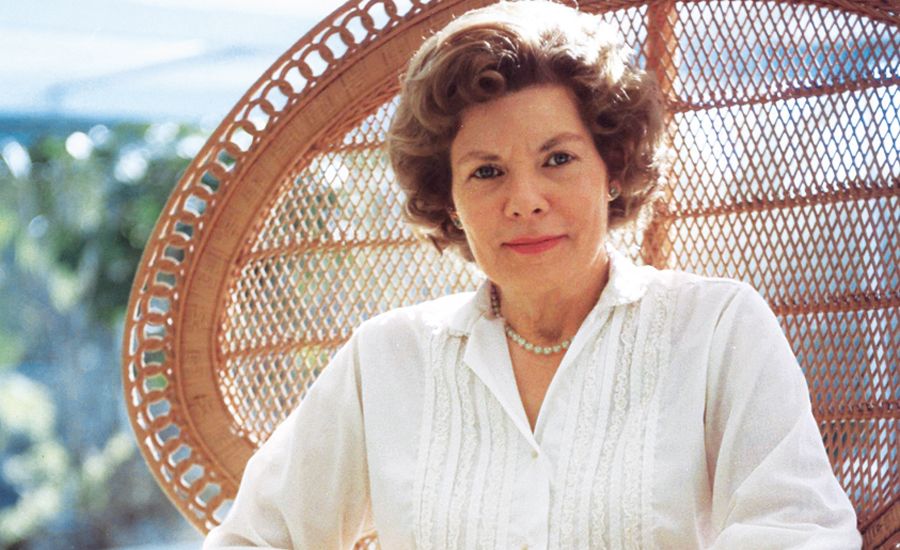Like most people, when I first began active experimentation with prayer, I was full of questions, such as: Why are some agonizingly sincere prayers granted, while others are not? I still have questions. Mysteries about prayer are always ahead of present knowledge—luring, beckoning on to further experimentation.
But one thing I do know; I learned it through hard experience. It’s a way of prayer that has resulted consistently in a glorious answer, glorious because each time, power beyond human reckoning has been released. This is the Prayer of Relinquishment.
I got my first glimpse of it in the fall of 1943. I had been ill for six months with a lung infection, and a bevy of specialists seemed unable to help. Persistent prayer, using all the faith I could muster, had resulted in—nothing. I was still in bed full-time.
One afternoon I read the story of a missionary who had been an invalid for eight years. Constantly she had prayed that God would make her well, so that she might do his work. Finally, worn out with futile petition, she prayed, All right. I give up. If you want me to be an invalid, that’s your business. Anyway, I want you even more than I want health. You decide. In two weeks the woman was out of bed, completely well.
This made no sense, yet the story would not leave me. On the morning of September 14—how can I ever forget the date?—I came to the same point of abject acceptance. I’m tired of asking, was the burden of my prayer. I’m beaten. God, you decide what you want for me. Tears flowed. I had no faith as I understood faith, expected nothing. The gift of my sick self was made with no trace of graciousness.
And the result? It was as if I had touched a button that opened windows in heaven; as if some dynamo of heavenly power began flowing. Within a few hours I had experienced the presence of the Living Christ in a way that wiped away doubt and revolutionized my life. From that moment my recovery began.
Through this incident, God was trying to teach me something important about prayer. Gradually, I saw that a demanding spirit, with self-will as its rudder, blocks prayer. I understood that the reason for this is that God absolutely refuses to violate our free will; that, therefore, unless self-will is voluntarily given up, even God cannot move to answer prayer.
In time, I gained more understanding about the Prayer of Relinquishment through the experiences of others in contemporary life and through books. Jesus’ prayer in the Garden of Gethsemane is a pattern for us, I learned. Christ could have avoided the cross. He did not have to go to Jerusalem that last time.
He could have compromised with the priests, bargained with Caiaphas. He could have capitalized on his following and appeased Judas by setting up the beginning of an earthly kingdom. Pilate wanted to release him, all but begged him to say the right words so that he might. In the Garden, Christ had plenty of time to flee, but he used his free will to leave the decision up to his Father.
J. B. Phillips, in his book The Gospels: Translated into Modern English, brings Jesus’ prayer into focus for us. Dear Father, all things are possible to you. Please let me not have to drink this cup. Yet it is not what I want, but what you want.
The prayer was not answered as the human Jesus wished. Yet power has been flowing from his cross ever since.
Even when Christ was bowing to the possibility of death by crucifixion, he never forgot either the presence or the power of God. The Prayer of Relinquishment must not be interpreted negatively. It does not let us lie down in the dust of a godless universe and steel ourselves just for the worst.
Rather it says, “This is my situation at the moment. I’ll face the reality of it. But I’ll also accept willingly whatever a loving Father sends.” Acceptance, therefore, never slams the door on hope.
Yet even with hope our relinquishment must be the real thing, because this giving up of self-will is the hardest thing we human beings are ever called on to do. I remember the agony of Sara, an attractive young girl who shared with me her doubts about her engagement.
“I love Jeb,” she said, “but he drinks. Not that he’s an alcoholic. Yet the drinking is a sort of symbol of a lot of ideas he has. This has bothered me so much that I wonder if God is trying to tell me to give Jeb up.” As we talked, Sara came to the conclusion that she would lose something precious if she didn’t follow the highest and the best that she knew.
Tears glistened in her eyes as she said, “I’m going to break the engagement. If God wants me to marry Jeb, he will see that things change—about the drinking and all.” Right then, simply and poignantly, she told God of her decision. She was putting her broken dreams and her future into God’s hands.
Jeb’s ideas and ideals didn’t change, so Sara did not marry him. But a year later she wrote me an ecstatic letter. “It nearly killed me to give up Jeb. Yet God knew that he wasn’t the one for me. Now I’ve met The Man and we’re to be married. Now I really have something to say about trusting God!”
It’s good to remember that not even the Master Shepherd can lead if the sheep have not this trust in him. That’s the why of Christ’s insistence on practical obedience: “And why call ye me, Lord, Lord, and do not the things which I say?” (Luke 6:46). Our pliability must be complete, from our wills right on through to our actions.
When we come right down to it, how can we make obedience real, except as we give over our self-will in reference to each of life’s episodes as it unfolds? That’s why it shouldn’t surprise us that at the heart of the secret of answered prayer lies the Law of Relinquishment.
So Mrs. Nathaniel Hawthorne, wife of the famous American author, found as she wrestled in prayer in the city of Rome one day in 1860. Una, the Hawthornes’ eldest daughter, had a virulent form of malaria. The attending physician had that afternoon warned that unless the young girl’s fever abated before morning, she would die.
As Mrs. Hawthorne sat by Una’s bed, her thoughts went to what her husband had said earlier that day. “I cannot endure the alternations of hope and fear; therefore I have settled with myself not to hope at all.” But the mother could not share Nathaniel’s hopelessness. Una could not, must not die. This daughter had the finest mind, the most complex character of all the Hawthorne children. Why should some capricious Providence demand that they give her up?
As the night deepened, the girl lay so still that she seemed to be in the anteroom of death. The mother looked out the window onto the piazza. A dark and silent sky was heavy with clouds.
I cannot bear this loss—cannot—cannot….Then suddenly, unaccountably, another thought took over. Why should I doubt the goodness of God? Let him take Una, if he sees best. I can give her to him. No, I won’t fight against him anymore. Having made the great sacrifice, Mrs. Hawthorne expected to feel sadder. Instead she felt lighter, happier than at any time since Una’s long illness had begun.
Some minutes later she walked back to the girl’s bedside, felt her daughter’s forehead. It was moist and cool. Una was sleeping naturally. And the mother rushed into the next room to tell her husband that a miracle had happened.
Now, the intriguing question is, What is the spiritual law implicit in this Prayer of Relinquishment? Fear is like a screen erected between us and God, so that his power cannot get through to us. So, how does one get rid of fear?
This is not easy when what we want most is involved. At such times, every emotion, every passion, is tied up in the dread that what we fear is about to come upon us. Obviously, only drastic measures can deal with such a gigantic fear and the demanding spirit that usually goes along with it. Trying to deal with it by repeating faith affirmations is not drastic enough.
So then we are squarely up against the Law of Relinquishment. Was Jesus showing us how to use this law when he said, “Resist not evil” (Matthew 5:39)? In God’s eyes, fear is evil because it’s an acting out of lack of trust in him.
Jesus is saying, admit the possibility of what you fear most. Force yourself to walk up to the fear, look it full in the face—never forgetting that God and his power are still the supreme reality—and the fear evaporates. Drastic? Yes. But it is one sure way of releasing prayer power into human affairs.
Download your FREE ebook, A Prayer for Every Need, by Dr. Norman Vincent Peale.







